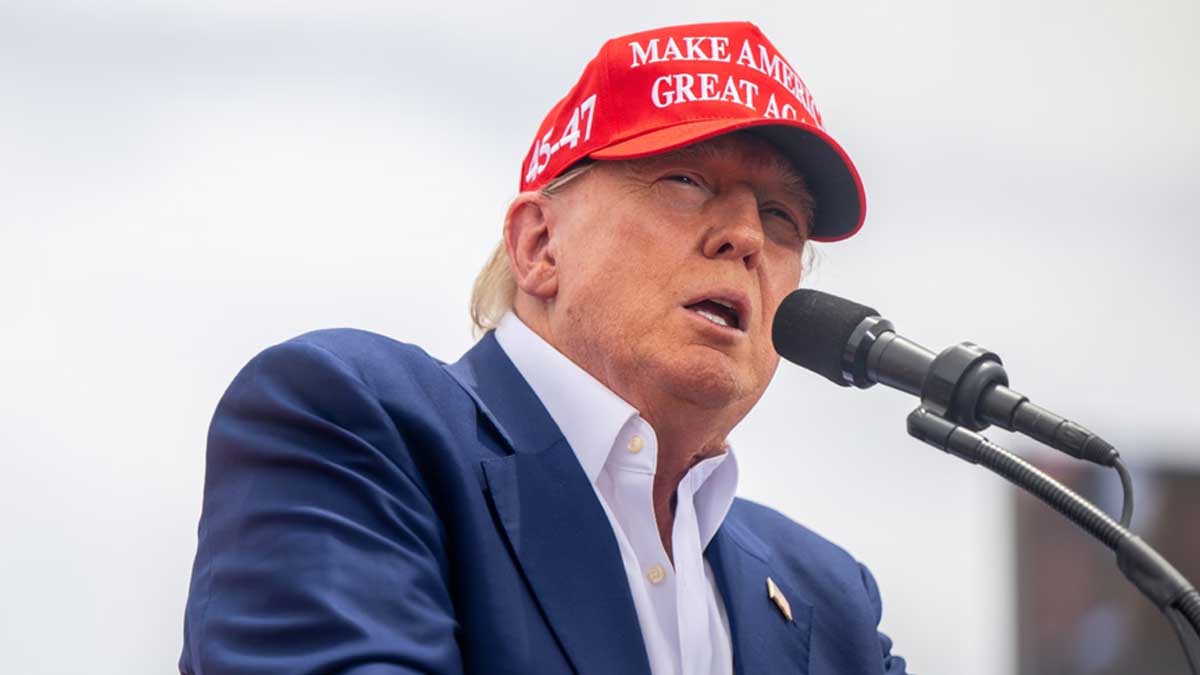- Home
- Billionaires
- Investing Newsletters
- 193CC 1000
- Article Layout 2
- Article Layout 3
- Article Layout 4
- Article Layout 5
- Article Layout 6
- Article Layout 7
- Article Layout 8
- Article Layout 9
- Article Layout 10
- Article Layout 11
- Article Layout 12
- Article Layout 13
- Article Layout 14
- Article Sidebar
- Post Format
- pages
- Archive Layouts
- Post Gallery
- Post Video Background
- Post Review
- Sponsored Post
- Leadership
- Business
- Money
- Small Business
- Innovation
- Shop
Recent Posts
Trump Proposes Tax-Free Tips for Workers

Former President Donald Trump announced at a rally in Las Vegas his intention, if re-elected, to eliminate federal taxes on tipped wages. This move, he stated, would apply to workers in industries such as hotels and restaurants who rely on tips as part of their income.
Trump, who made this announcement at his first rally since being convicted on multiple felony charges, emphasized that taxing tips has long been a contentious issue and that workers in tipping jobs deserve a break. He pledged to implement this change immediately upon taking office, asserting that workers in these roles would no longer be pursued for taxes on their tips.
The specifics of Trump’s proposed policy changes were not detailed during his announcement. However, he expressed a commitment to ensuring that workers in restaurants and similar establishments would no longer be taxed on their tips, a move he believes is well-deserved by these workers.
The issue of taxing tips is significant, with the IRS estimating that it loses approximately 45% of owed taxes on tips each year due to inaccurate reporting. While the IRS typically receives 99% of what it’s owed on regular wages, it only collects around 55% of owed taxes on tips.
Las Vegas, the location of Trump’s announcement, relies heavily on tourism and has a large number of service workers who depend on tips for their income. The city’s leisure and hospitality industry is a major employer, representing 26% of total employment as of January 2023.
Despite Trump’s assertion that the idea of eliminating taxes on tips is unprecedented, former Rep. Ron Paul previously proposed a similar plan in 2012. Paul, a Libertarian from Texas who ran for the Republican Party’s presidential nomination that year, advocated for ending federal taxation of tips and argued that tipped workers are overtaxed.
In conclusion, Trump’s proposal to eliminate taxes on tipped wages, if implemented, could have significant implications for workers in industries reliant on tips, particularly in cities like Las Vegas. However, the specific details and potential impacts of this policy change remain unclear.
Recent Posts
Categories
- 193cc Digital Assets2
- 5G1
- Aerospace & Defense45
- AI33
- Arts3
- Banking & Insurance11
- Big Data3
- Billionaires308
- Boats & Planes1
- Business315
- Careers13
- Cars & Bikes74
- CEO Network1
- CFO Network17
- CHRO Network1
- CIO Network1
- Cloud10
- CMO Network18
- Commercial Real Estate7
- Consultant1
- Consumer Tech171
- CxO1
- Cybersecurity59
- Dining1
- Diversity, Equity & Inclusion4
- Education7
- Energy8
- Enterprise Tech29
- Events11
- Fintech1
- Food & Drink2
- Franchises1
- Freelance1
- Future Of Work2
- Games141
- GIG1
- Healthcare77
- Hollywood & Entertainment175
- Houses1
- Innovation41
- Investing2
- Investing Newsletters4
- Leadership65
- Lifestyle11
- Manufacturing1
- Markets20
- Media189
- Mobile phone1
- Money13
- Personal Finance2
- Policy554
- Real Estate1
- Research6
- Retail1
- Retirement1
- Small Business1
- SportsMoney30
- Style & Beauty1
- Success Income1
- Taxes2
- Travel10
- Uncategorized8
- Vices1
- Watches & Jewelry2
- world's billionaires278
Related Articles
Trump Threatens 100% Tariffs on BRICS Over Dollar Replacement
Donald Trump issued a stark warning on Saturday, stating that he would...
By 193cc Agency CouncilNovember 30, 2024‘MAGA’ Bomb Threats Target Connecticut Democrats
Six congressional Democrats from Connecticut were targeted with bomb threats on Thanksgiving,...
By 193cc Agency CouncilNovember 30, 2024Mothers of Chibok: Ten Years of Strength and Struggle
The documentary Mothers of Chibok, which premiered at the DOC NYC film...
By 193cc Agency CouncilNovember 29, 2024Five Democrats Targeted by Bomb Threats on Thanksgiving
In a chilling reminder of the escalating political climate in the United...
By 193cc Agency CouncilNovember 29, 2024















Leave a comment